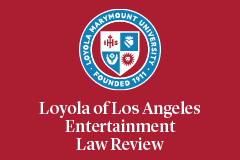Abstract
In 2014, a group of retired professional football players sued the National Football League (“NFL”), claiming that the league distributed con- trolled substances and prescription drugs to them in violation of state and federal laws. The trial court ruled that the players’ state law claims are preempted by section301 of the Labor Management Relations Act (“LMRA”), and that the players should instead follow the arbitration procedures set out in the agreed upon collective bargaining agreement. However, the Ninth Circuit reversed the NFL’s motion to dismiss on the grounds that the players’ claims are not preempted by section 301. Ultimately, the Ninth Circuit Court of Appeals’ ruling in Dent v. National Football League may place the liability of caring for the health and safety of players directly on the NFL itself rather than individual teams. This essentially ignores the policies set out in the collective bargaining agreement.
This Comment argues that the Ninth Circuit erroneously reversed the trial court’s ruling, because the claims brought against the NFL by the retired professional football players should be preempted by section 301 of the LMRA. Furthermore, this Comment argues that the Ninth Circuit’s decision interferes with the uniformity of interpretation of collective bargaining agreements. For this reason, the ruling is unfair to not only the league, but to other organizations and companies who also rely on collective bargaining to negotiate with employees.
Recommended Citation
Nairi Dulgarian,
How the Holding in Dent v. National Football League Tackles Collective Bargaining Agreements,
39 Loy. L.A. Ent. L. Rev. 205
(2019).
Available at: https://digitalcommons.lmu.edu/elr/vol39/iss3/1


